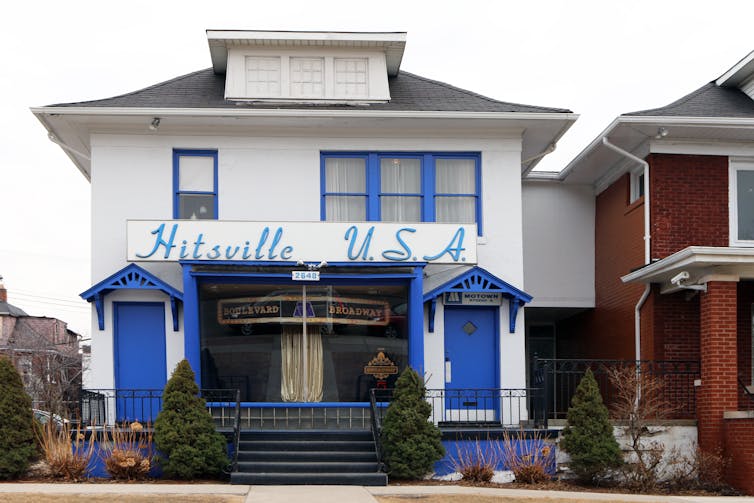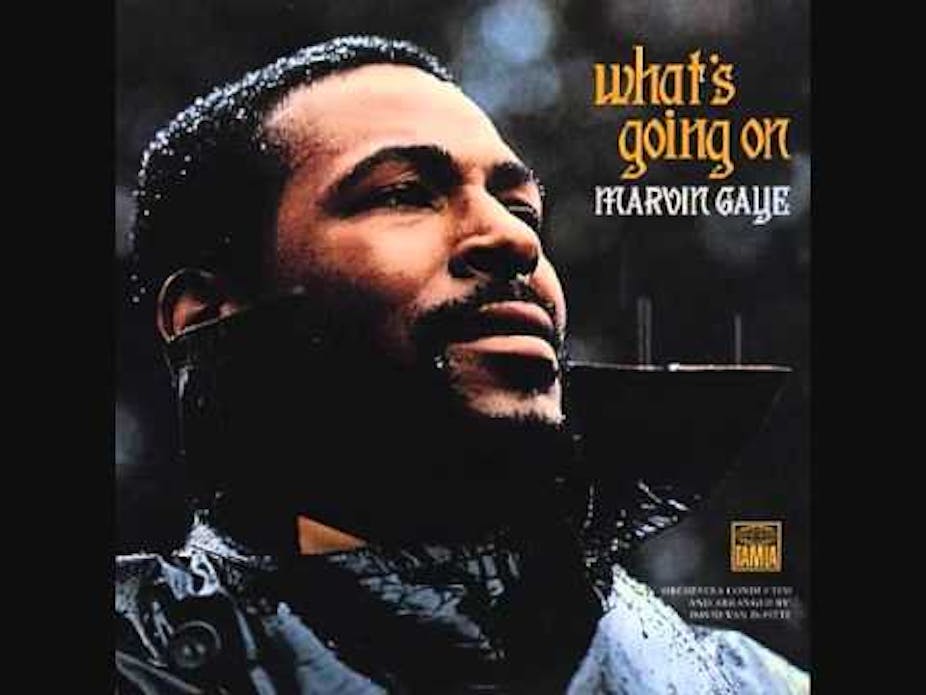Many protest songs are historical artefacts. They are about a specific time, event, movement or person, often without longevity, and make sense only within a specific context. There are a few exceptions. American soul singer Marvin Gaye’s title track from his 1971 album, “What’s going on” is a glowing example.
It was released on Motown Records, which had on its roster legendary artists such as Stevie Wonder, Smokey Robinson, Diana Ross, The Temptations and the Jackson Five. But the album was the first ever soul concept album, with the entire record based around protest songs.
Although the 47-year-old song was written at the height of the Vietnam and Cold Wars and ultimately viewed as an American social anthem of the time, it does not detract from the fact that the issues underlying it remain as relevant today as they were back in the time Gaye, and Motown colleagues, Renaldo “Obie” Benson and Al Cleveland, wrote the song. It perhaps as relevant today as the time it was released on January 20, 1971.
Not only is “What’s Going On” a universal anthem about the state of the world, it has also inspired a number of popular, mainstream artists to use their music as social commentary. Among them are contemporary popular artists like Beyoncé, Kendrick Lamar and Jay-Z.
Police brutality
Co-composer Obie Benson was a member of the Motown vocal act, the Four Tops. In May 1969 their tour bus arrived in San Francisco where he saw police attacking a crowd of hippies over a disused urban lot called People’s Park. He described the incident to music writer Ben Edmonds in the 2001 book, What’s Going On: Marvin Gaye and the Last Days of The Motown Sound:
The police was beatin’ on them, but they weren’t bothering anybody. I saw this, and started wondering what the fuck was going on. What is happening here? One question leads to another. Why are they sending kids so far away from their families overseas? Why are they attacking their own children in the streets here?
These questions translated into a song Benson wrote with Cleveland, an in-house Motown composer. But his fellow members in the Four Tops weren’t interested in protest music. Fortunately, Gaye was very keen. Benson said:
Marvin already felt like this. He was a rebel, and a real spiritual guy.
Inspired by the harrowing stories told to him by his younger brother Frankie over his Vietnam war experiences, Gaye would eventually make the song his own. He added lyrics and, according to Benson:
When you heard that song, you could see the people and feel the hurt and pain. We measured him for the suit and he tailored the hell out of it.
Almost never released
But “What’s Going On” was almost never released. This was a time when Motown was cautious of promoting songs of a political nature. The label’s boss, Berry Gordy, was on holiday in the Bahamas when an excited Gaye phoned him about the new protest song.
As music writer Dorian Lynskey described it in his excellent book on protest music, “33 Revolutions per Minute”:
Gordy responded like a father whose favourite son had just rejected an Ivy League scholarship to become a Yippie. ‘Marvin, don’t be ridiculous. That’s taking things too far’.
When Gordy heard the song he called it “the worst thing I’ve ever heard in my life”. However, Motown was desperate for new music from Gaye and released it to massive critical and commercial acclaim.
The album was equally successful - it was later described by music writer Peter Shapiro as having “changed the shape and direction of pop music”.

The singer behind the song
Born in Washington DC, on 2 April 1939, Marvin Pentz Gay Jr grew up in a religious household. His deeply conservative father, Marvin Sr served as a church minister of a Pentecostal church. His mother, Alberta, was a domestic worker.
He didn’t have a happy childhood. He was constantly beaten by his abusive father. As a way of escape, he would find solace in singing. He went on to become one of popular music’s most admired singers and songwriters.
His life came to a sad end on 1 April 1984, a day before his 45th birthday, when he was shot and killed by his father after an argument.
The context of the song
“What’s Going On” was released at the time the Vietnam War was still raging in 1971. Three years before, the black civil rights leader, Martin Luther King Jr had been assassinated. In 1969 Richard Nixon was elected as America’s 37th president.
America was in a state of turmoil – protests against the Vietnam War resulted in widespread violence and police brutality.
“What’s Going On” was a response to a war that claimed the lives of over 3 million people – more than half of them Vietnamese civilians. The song not only called for an end to the war. It also served as a critique of 1970s America. Drugs, racism and poverty were crippling most inner cities.
The song’s relevance today
“What’s Going On” remains relevant today. Even now its plaintive lyrics speak eloquently about a post-9/11 world that’s upside down, with sabre-rattling leaders such as Donald Trump and Kim Jong-Un grabbing the headlines. Regional wars continue to claim countless live and force millions to flee their homes.
“What’s Going On” allows us to think – yet again – about whether war is necessary:
We don’t need to escalate
You see, war is not the answer
For only love can conquer hate.

